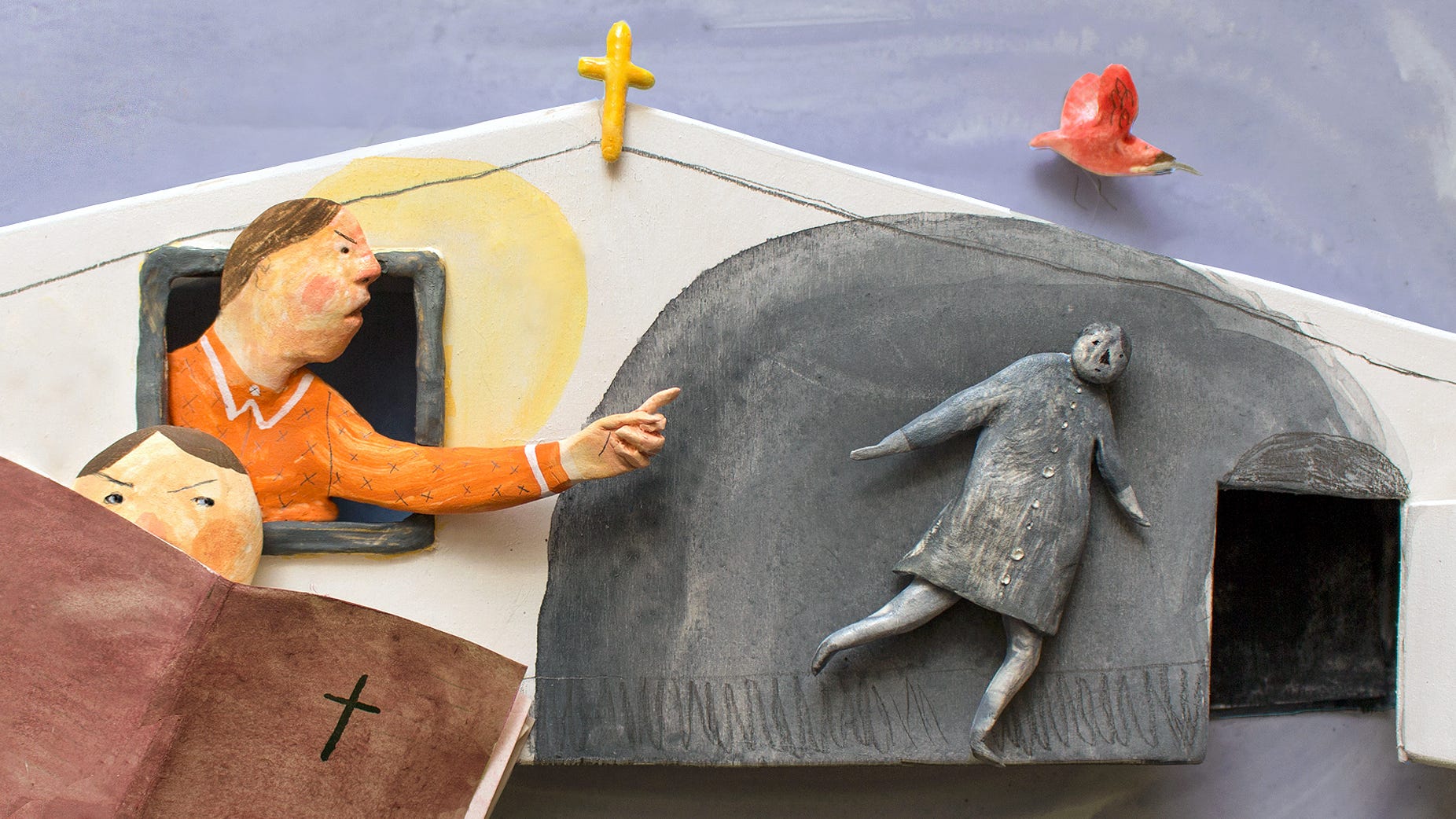The Brutal Excommunication of a Christian Homeschooling Pioneer
She was a rising star of the religious right, with fervent followers across the nation. When she filed for divorce, it all came crashing down.

Illustrations by Sophie Page | Edited by Michael Stahl
In late summer 1998, a lawyer named Barbara Duffy stood in front of an all-female jury inside the Tacoma, Washington, federal courthouse. She had just called her first witness in a trial that would drag on for ten more days. The witness was her own client.
“Have you ever been an ordained pastor?” asked Duffy, blond, pragmatic and then in her mid-30s.
“No,” replied Cheryl Lindsey Seelhoff, the plaintiff in this case and publisher of Gentle Spirit, an intentionally quaint magazine with old-style serif fonts and vintage illustrations. Seelhoff, then a 46-year-old mother of 11 with long, wavy hair and a warm face, founded the publication in 1989, gearing it toward large families living economically. The magazine paired cooking guides with articles on joy, loss, natural birth and homeschooling – and it was the reason she took the stand that day.
For five years Gentle Spirit had enjoyed continuous bumps in readership, growing enough to full…
Keep reading with a 7-day free trial
Subscribe to Narratively to keep reading this post and get 7 days of free access to the full post archives.


